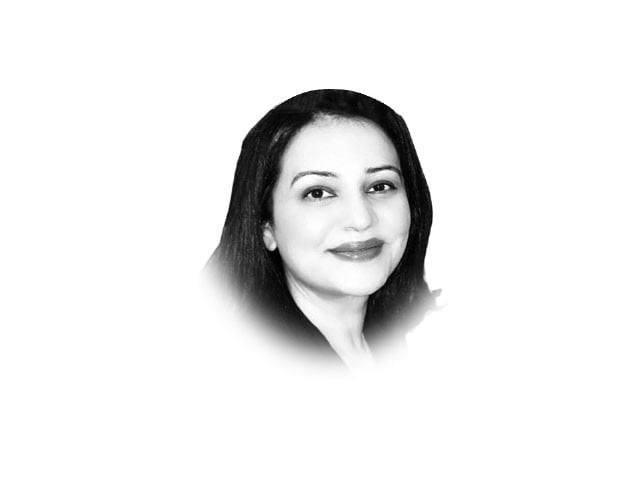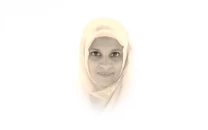From citizens to collaborators to collateral damage
Such morally grey history still defines the reality of my community

What is the cost of denial and non-closure in the face of an ongoing genocide?
The plight of the fourth- and fifth-generation descendants of nearly 300,000 patriots — still confined to 6x6 cages in Bangladesh - is systematically pushed aside by more media-savvy and politically-palatable priorities. With each passing day, the likelihood of historical inclusion for Pakistanis caught in the conflict of 1971 — widely viewed by influential voices in activism, advocacy, academia and authority as those who 'stood on the wrong side of history' — continues to wither.
And yet, I find myself still owning a cause that even many within this community (arguably the most doomed among those who have themselves endured genocide and ethnic cleansing) have chosen to ignore, as an act of pragmatism, if not quiet apathy. Various telling examples of this eradication persist in academic literature that "convincingly" confirms not only the genocide of Bengalis but, in many cases, may aggrandise it.
Recently, I came across mentions of a forthcoming book, Citizens to Traitors by Dr Ilyas Chattha, with endorsements from eminent historians like Ayesha Jalal and Bina D'Costa. The book studies the 'internment of Bengalis in Pakistan between 1971 and 1974', following the 'liberation of Bangladesh'. Although I have not had access to the full text, the existing previews moved me to respond. (This reference was not part of my original op-ed.).
I congratulate him for addressing this heartbreaking chapter. While respecting the academic intent, the claim merits further exploration. Many Bengalis, including public figures who chose to remain Pakistani, were accorded full rights. Many still travel freely to and from Bangladesh. Those who renounced Pakistani citizenship, including students, diplomats and military personnel who supported the creation of Bangladesh, left peacefully, selling their assets without reports of violence or harassment in West Pakistan.
The contrast in East Pakistan was stark: thousands of pro-Pakistan civilians, mostly Biharis, were mercilessly executed by Muslim Bengali Mukti Bahnis. Women were raped, killed, or abducted. As documented in Blood and Tears by Qutbuddin Aziz, this brutality has long been concealed. Survivors were displaced, exiled from homes, and left to rot in wretched camps. Over five decades later, these shelters remain symbols of betrayal not just by Bangladesh but by Pakistan too: the country they defended and the country that denigrated them. It seems that books like Dr Chattha's, along with many other theoretical works on 1971, almost entirely eliminate the Bihari version of history. Is this a minor oversight? Or does it expose a patent pattern in South Asian historiography to centre those who align with profitable storylines, while stifling those whose tribulations are dismissed as unmarketable?
Academics must draw a line between selective amnesia that serves political convenience and the pursuit of historical truth. I hope I am mistaken. For the sake of intellectual honesty, I imagine that all such academics would be writing about the genocide of my community, deliberately undocumented and denied.
As someone who has lived through this erased history, I request the State to investigate the 'internment' and share the truth with us, the citizens, no matter how ugly it may be. This is a matter of the country's image.
I wish I had access to the opinion-shapers to tell the story of how Biharis and other non-Bengali Urdu speakers were relegated from loyal citizens to stateless 'collaborators'. Today, my people are shelved as 'collateral damage', deserted by Pakistan (repatriation froze long ago), and marginalised even by those who claim to champion minority and human rights.
I wish I could engage with elite students of elite universities to emphasise what it feels like to be on a US fellowship, only to find your host is a Bangladeshi American who proudly says he was a freedom fighter and assassinated Biharis. I wish I could elucidate what it feels like to look around at fellow Pakistanis and find no support, only silence and solidarity with the dominating-hateful narratives.
I wish I could conduct simulation workshops with Pakistani youth, who frequently use social media for gaining information. I would assign roles as pro-Pakistan Biharis and ask, would you cooperate with the army in intelligence gathering? Could you resist local rebels trained in guerrilla warfare? Could you remain neutral, and if so, would anyone believe you?
Such morally grey history still defines the reality of my community. The slaughter and devastation of my people in East Pakistan carried out with the reinforcement of international and regional players has been rebranded as the butchery of Bengalis. Through my single-handed research and podcast work with survivors, I have recorded some indescribable testimonies. Nonetheless, due to power inequities and very real risks, many of those responsible for perpetuating this propaganda against Biharis cannot be named.
Many ordinary, educated eyewitnesses to the 1971 tragedy are still alive. Yet voices like theirs are never invited to share their lived truth. To simply say: Bengalis were not traitors to begin with. And the stranded Biharis were never traitors either. They stood with the state and its soldiers, not the separatists, and are still paying the price. How long must new generations of those ill-fated Pakistani citizens who committed the "crime" of supporting the central state continue to tolerate the signs of genocide? What message does their horrific end send to anti-state voices in today's Pakistan? Please just take a look. Empathy, not sympathy. That is all we ask. But that remains a distant dream.
Personally, I do not see either Biharis or Bengalis as villains, only victims of a conflict in which the majority had little say, little consent, and were forced to choose sides.
Yet some form of remorse, and some measure of compensation, must follow. The difference between the two lies in the state: the former remain stateless; the latter have a homeland of their own.
The reality, however, is far harsher, far darker, than I could ever fully express.
Pakistan, I still love you!



















COMMENTS (1)
Comments are moderated and generally will be posted if they are on-topic and not abusive.
For more information, please see our Comments FAQ